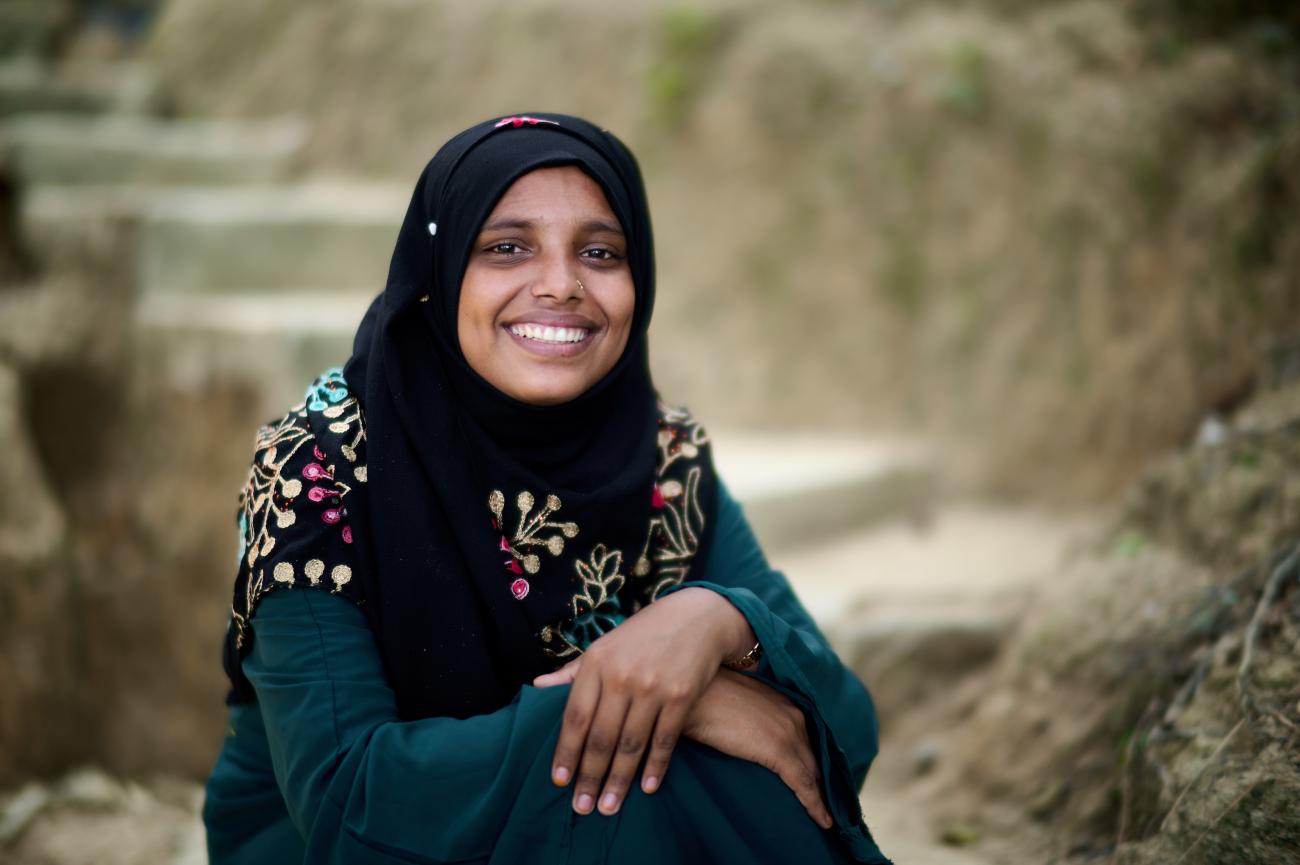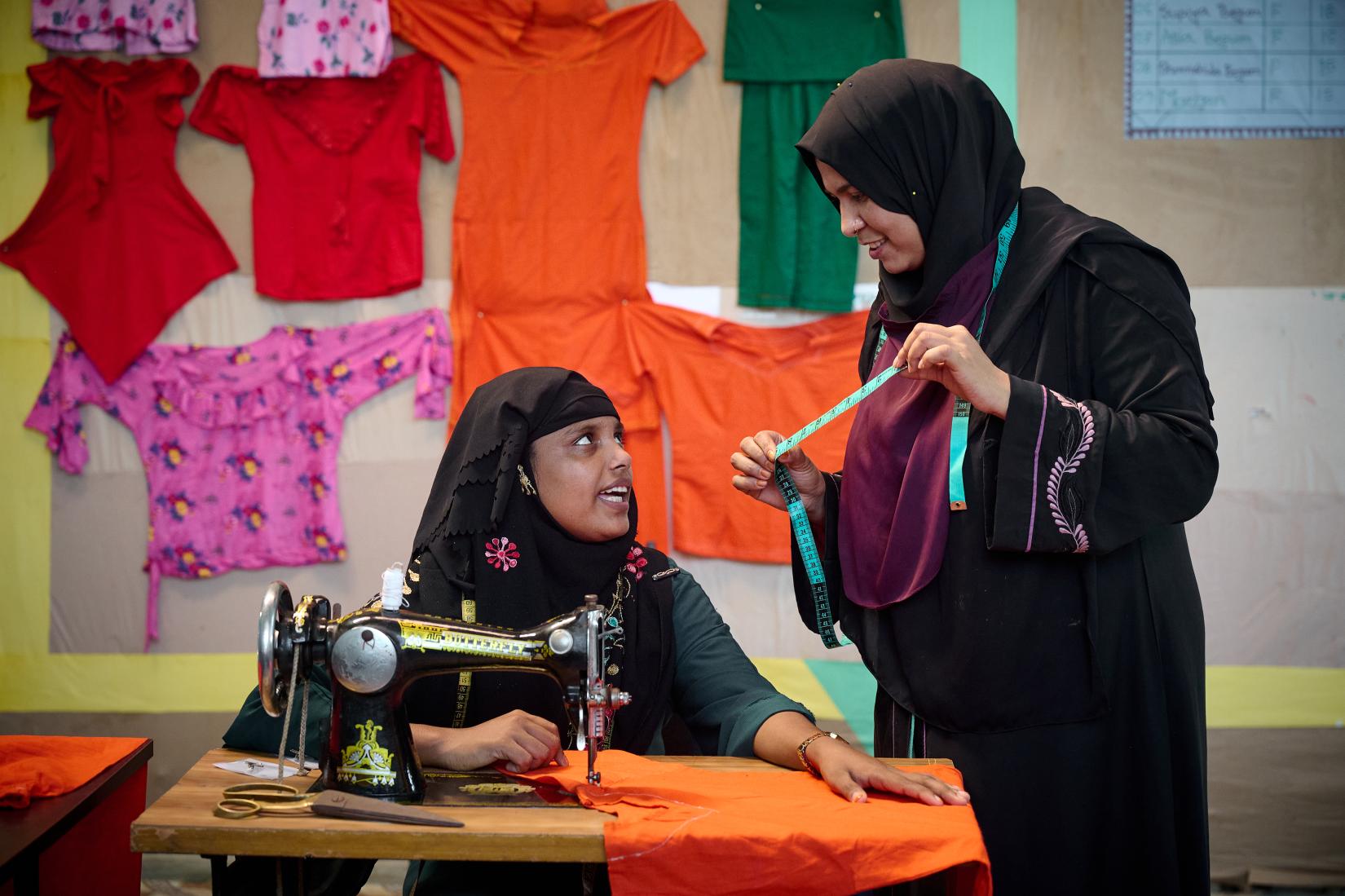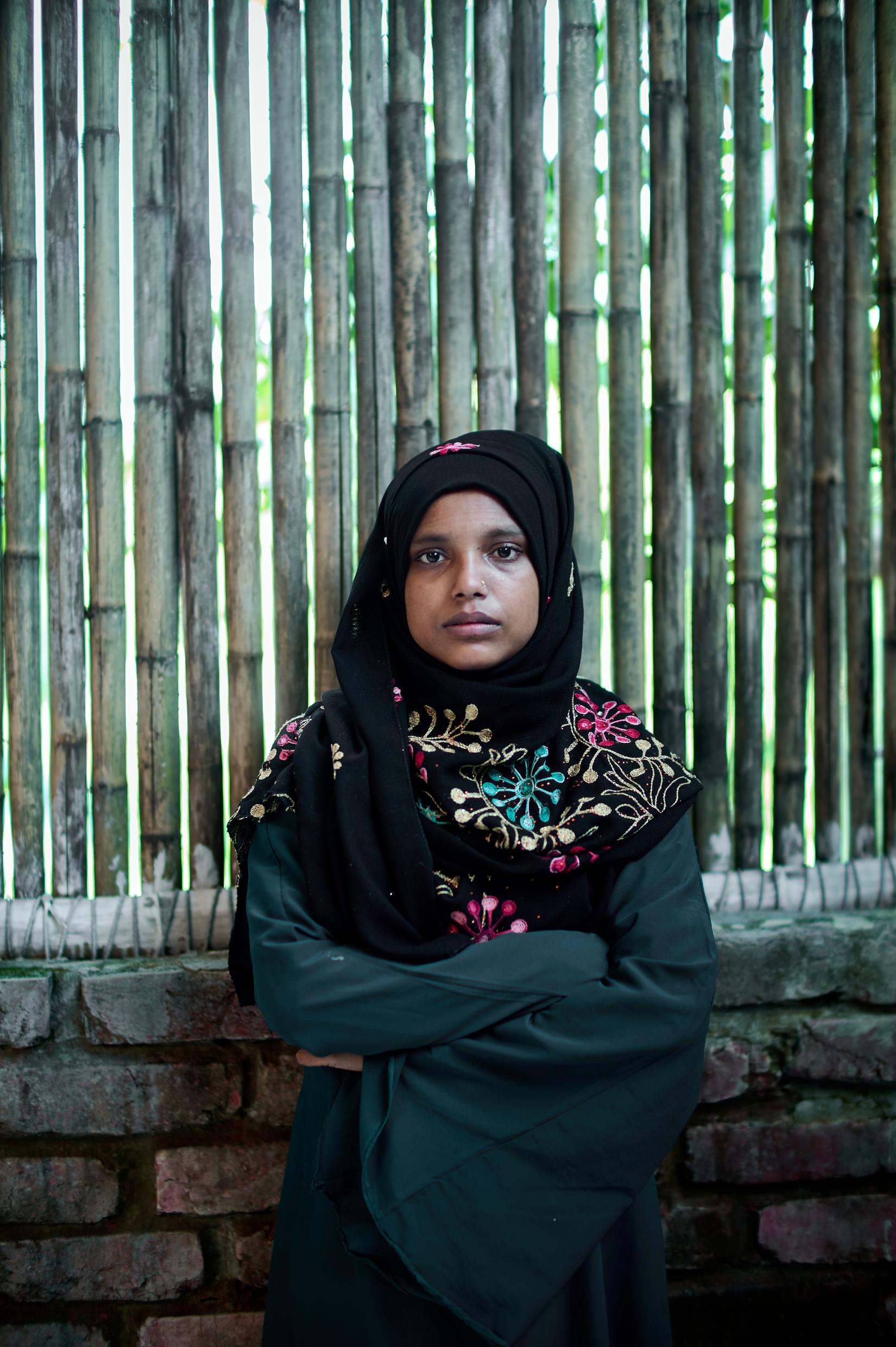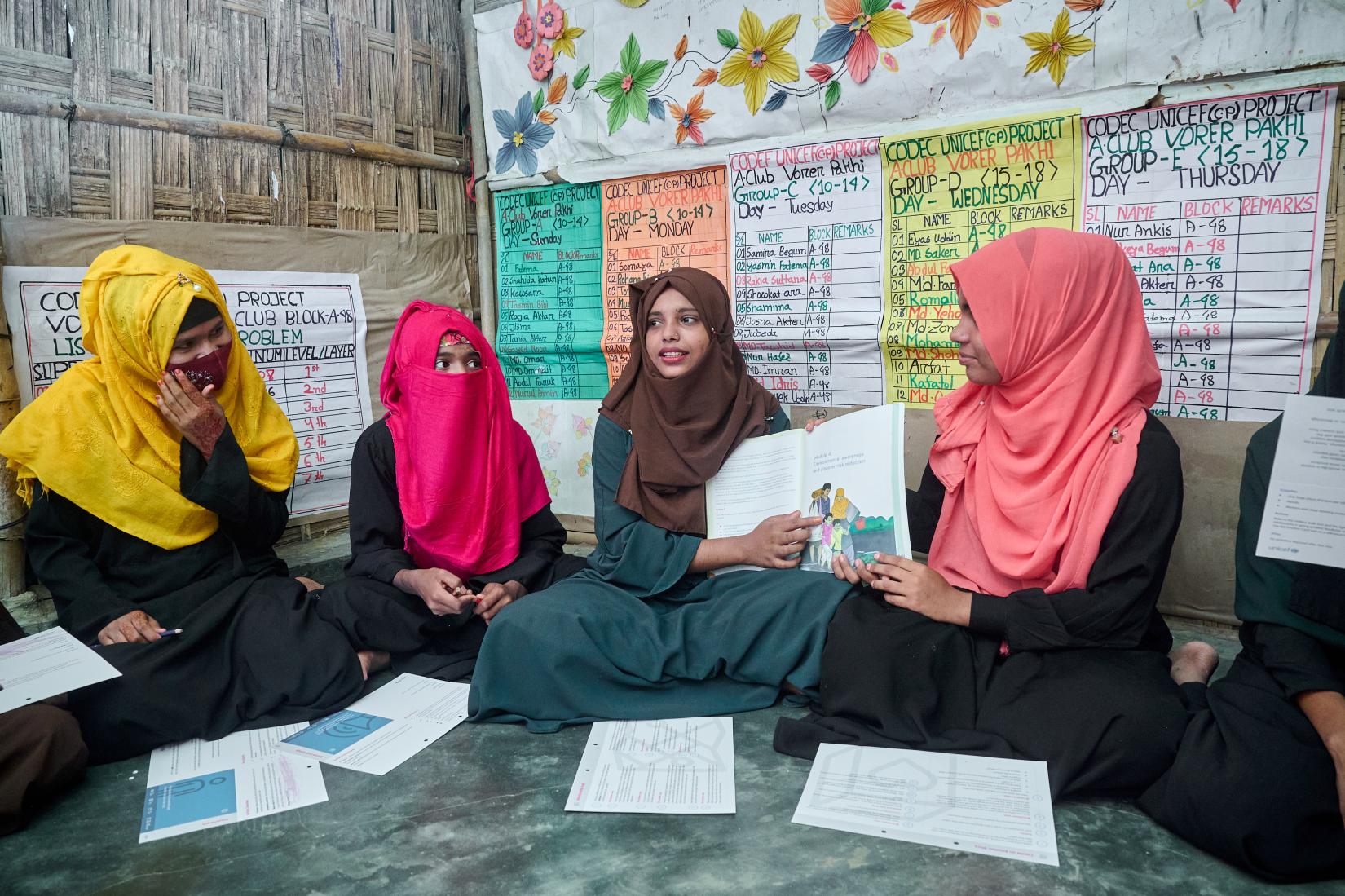A quiet force for change in Cox’s Bazar

Mostofa, a Rohingya refugee adolescent girl, learns to confront adversity and advocate for children’s rights
When violence broke out in Myanmar in 2017,18-year-old Mostofa and her family found themselves uprooted from their home like countless others as they fled for their lives. But their hardships were only beginning as they adjusted to the new reality of living in the Kutupalong refugee camp in Cox’s Bazar, Bangladesh.
“I lost my mother only 15 days after we arrived at the refugee camp,” says Mostofa. “Ever since, I have been doing the household chores, taking care of my younger siblings and assisting them with their studies. My father is too sick to provide for our family’s needs.”
The burden of responsibility fell heavily on Mostofa's shoulders, and she navigated the role of caretaker and cooked for her father and eight siblings. However, the challenges did not end there.
“After completing my chores, I seized every opportunity to pursue my education,” she explains. “I was a regular at the learning centre. I enjoyed studying English, Burmese and Mathematics. But I no longer go to the learning centre after I turned 18.”
The hurdles that girls like Mostofa face during the initial steps of puberty are profound. Traditional norms and misconceptions force young girls to miss out on opportunities and become invisible, especially in regular social spaces such as classrooms. The learning centre, once a source of vibrancy, became inaccessible to Mostofa due to the onset of menstruation.
Soon after, a case worker responsible for case management services for at risk and vulnerable children in the refugee camps visited Mostofa’s home and spoke to her father about enrolling her in the nearby multi-purpose centre. The centre, which is supported by UNICEF with funding from the European Union, provides a space where adolescent girls like Mostofa can learn life-skills while receiving lessons in basic numeracy and literacy and vocational training on tailoring, solar repair and other trades. Mostofa’s father agreed to let her attend, and the centre quickly became her sanctuary where she not only honed her sewing skills but also learned essential life-skills lessons.

“I am learning new skills at the multi-purpose centre,” Mostofa shares. “I learned about issues like child marriage, nutrition, food, hygiene and many more during the life-skill sessions.”
As Mostofa began learning and grew more confident, she was encouraged to become an adolescent peer leader – a crucial role in the refugee camps. Adolescent peer leaders are chosen from adolescent groups for their leadership qualities, resilience and dedication to their own education to help identify and stop cases of child labour, child marriage, child neglect and child abuse in their community.
Mostofa's role as a peer leader is not without challenges. She often confronts scepticism and dismissive attitudes – typical of the hurdles faced by female leaders in conservative societies.
"People ask me what I would know about their struggle. They sometimes do not value what I say,” she explains. “So, I bring staff from the centre along with me to help them understand."
Despite the questioning looks and social norms, Mostofa – equipped with the awareness that she gained from the multi-purpose centre – has continued advocating for education, child safety and child rights. She is saddened knowing that many underaged children toil in the camps and felt responsible for approaching Rahim and Yunus, two young boys aged 11 and 12 that she saw carrying gas cylinders across the camp for other people. She engaged with the boys and asked them why they were not attending classes.

“The little boys wanted to go to school, but their parents did not enrol them in a learning centre,” recalls Mostofa. “Their families were struggling financially, and their parents were too old to work. Later, when I saw one cleaning a drain and the other carrying bamboo, I reported it to the case worker at the centre.”
As a result of Mostafa's intervention, she and the case worker engaged the boys’ families in conversations that unravelled the challenges and harmful consequences of child labour and child neglect. After the discussion, the boys’ parents agreed to send them both to a learning centre.
Mostafa's sincerity connects with children and adolescents, giving them the confidence to transcend the rigid boundaries of social norms. Thanks to adolescent peer leaders like her, the tide is slowly turning on child protection issues in the camps. With her burgeoning confidence and skills, her aspirations are growing and extending beyond her own journey.
“I wish for a future where all girls can continue their education, protecting them from the menace of child marriage,” she says. “I aspire to become a teacher so I can share knowledge and inspire others.”




